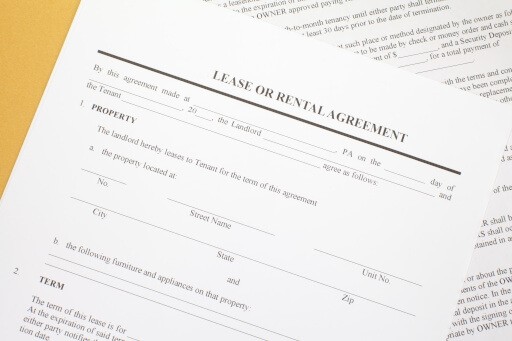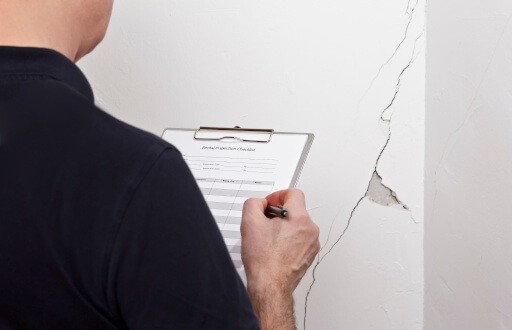Unfortunately, at some point, your tenants will eventually move out. Your tenants may relocate because they got a new job across the country or finally purchased a home, along with several other reasons. But what do you do when a tenant leaves behind a room full of boxes, old furniture, or a cuddly pet? As a new landlord, you might ask, if there are abandoned items on my property, can't I just get rid of them? The short answer is no. Removing abandoned property is very complicated and if you're not careful, you could end up in small claims court. Here’s what you should do when your tenants leave you with their items.
Determine Why the Tenant Left
The first thing you should do is determine why your tenant left. Did their lease end and they just forgot a few boxes, or did they vanish without giving proper notice? Were they being evicted? Depending on their reason for leaving, your tenant may still have some rights to the items left in the apartment. The type of items left behind matter as well. You can throw out any items like spoiled food or cardboard boxes, but items with value such as electronics, furniture, and clothing must be removed properly. Abandoned vehicles such as cars or motorcycles should be reported to the police so they can schedule a tow. Check your state’s laws and consult with a lawyer so you can ensure you are removing the items properly.
Protect Yourself
Although laws regarding abandoned belongings vary by state, there are a few things you can do to protect yourself no matter where you live:
Be proactive
Before your tenant even moves out, you should work towards avoiding abandoned personal property as much as possible. You may be able to add a clause in your lease detailing what will happen when items are left behind. For example, you could charge a removal fee or note that you will withhold a portion of the security deposit. You can also send out a move-out checklist to remind tenants of your expectations.
Create an itemized list
Before you move anything out of the apartment, created a detailed list of all of the items of value left in the space. Take photos and videos of each item to show its condition, which will protect you from being liable for any damage claims.
Document the situation
Record the reasons why you believe the items have been abandoned and the date of the last rent payment you received. Also, keep a record of any conversations you had with neighbors or emergency contacts.
Get a witness
When it’s finally time to remove the items, ask a neutral party to watch you remove the items properly. If you’re placing the items in a storage unit, your witness should watch you do that, as well.
Screen Prospective Tenants
If your tenant has already abandoned their property, you can't exactly screen them in retrospect. However, in the future, thorough online screening before selecting a renter to move into your property can heighten the chances that your tenant will be reliable. When you screen your tenants with Apartments.com, you can view eviction history, credit reports, and other information that could prove useful in your decision.
Contact and Notify the Tenant
After you research your state laws, you should begin reaching out to the tenant by delivering a written notice of abandoned property, also called a notice to pick up personal property. Send the legal notice via certified mail and request a return receipt so you have proof the tenant received the letter. You can also send an email to ensure the tenant sees the letter.
In the letter, you should include your itemized list of the property with photos, where the items are currently stored, a time frame to claim their belongings, and consequences if the property is not claimed by the deadline. In some states, you can sell or donate abandoned property as well as deduct any costs incurred from storing or advertising the property from the security deposit. You should include this information in the letter as well. Be sure to double-check what your state requires in a notice to pick up personal property to avoid litigation.
What If the Tenant Never Claims Their Property?
Unfortunately, your tenant never claimed their personal belongings. Remember, depending on your state’s regulations, you can sell, donate, or keep the property. If you decide to sell the items, some states have a dollar threshold preventing the landlord from having complete free reign with abandoned property. Once again, do your research to determine if you can sell the items online or if you’ll need to contact the county to organize a public auction.
If the tenant installed any fixtures such as shelves or lighting equipment, they are considered part of the rental property and landlords can keep them. If you did not approve of these permanent fixtures, you are allowed to deduct from the security deposit to cover the cost of removal and repair.
Similar to renters, landlords don’t want to deal with a stressful move-out. Unfortunately, when a tenant leaves behind boxes of items or furniture, landlords must endure the long process of properly removing personal property. You certainly don’t want an angry resident suing you because you carelessly threw away their couch or sold a family heirloom online. Always remember to send the tenant an abandoned property letter to protect yourself. Although this process may seem taxing, it’s necessary to protect yourself and prevent the situation from getting worse in the long run.











